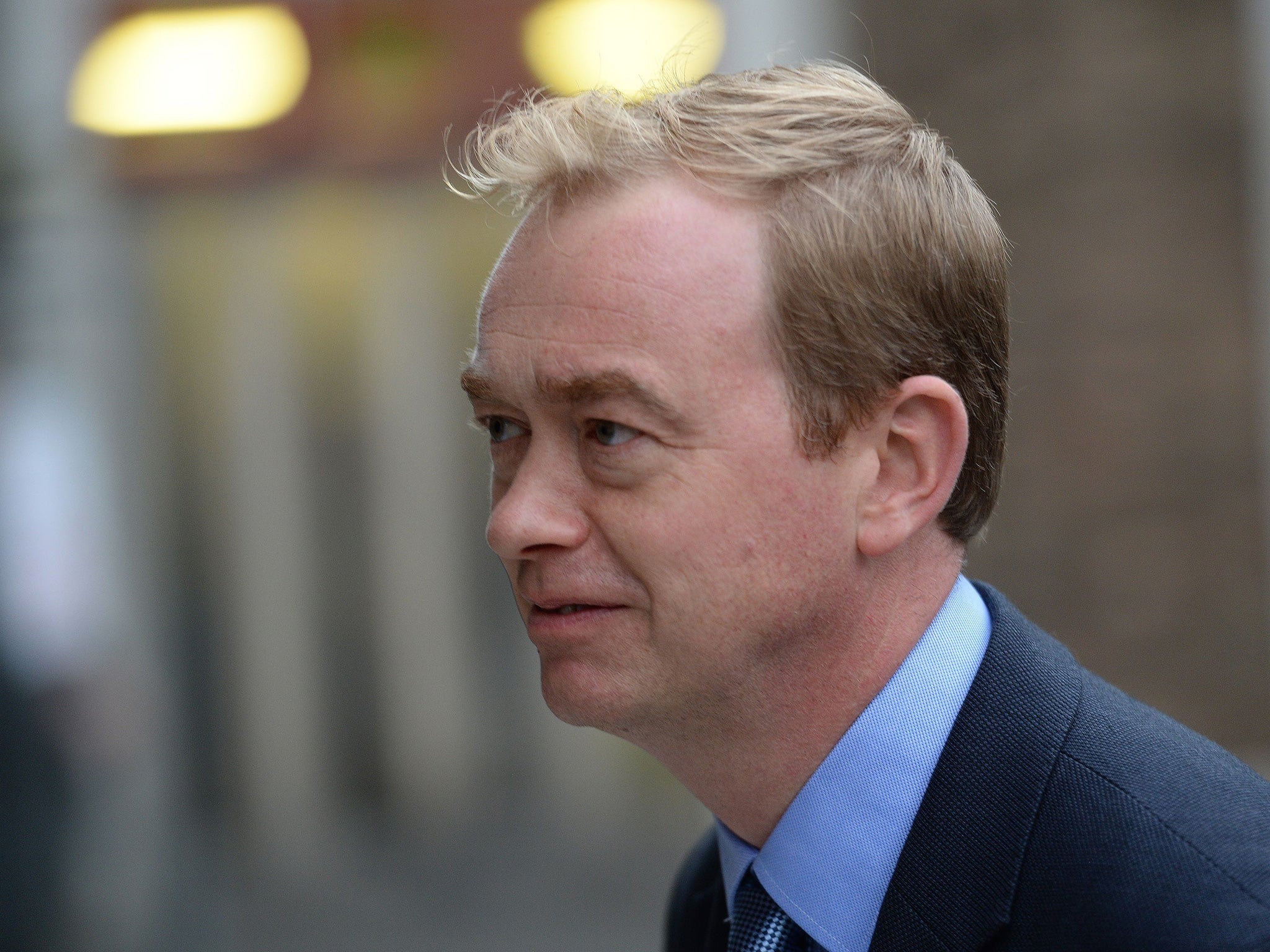Investigatory Powers Bill: Labour accused of acting like a 'nodding dog' over support for Theresa May's plans
Exclusive: Lib Dem leader TIm Farron promises to lead fight against draft bill as he seeks to carve out a niche for his party

Your support helps us to tell the story
From reproductive rights to climate change to Big Tech, The Independent is on the ground when the story is developing. Whether it's investigating the financials of Elon Musk's pro-Trump PAC or producing our latest documentary, 'The A Word', which shines a light on the American women fighting for reproductive rights, we know how important it is to parse out the facts from the messaging.
At such a critical moment in US history, we need reporters on the ground. Your donation allows us to keep sending journalists to speak to both sides of the story.
The Independent is trusted by Americans across the entire political spectrum. And unlike many other quality news outlets, we choose not to lock Americans out of our reporting and analysis with paywalls. We believe quality journalism should be available to everyone, paid for by those who can afford it.
Your support makes all the difference.The Liberal Democrats have accused Labour of acting like a “nodding Conservative dog” for giving qualified support to Theresa May’s controversial plans to shake up Britain’s surveillance laws.
Tim Farron, the Lib Dem leader, has promised to lead the fight against the Draft Investigatory Powers Bill as he seeks to carve out a niche for his party as a champion of civil liberties.
The Lib Dems will table amendments to the legislation in an attempt to give judges, rather than ministers, the power to authorise warrants to intercept the contents of people’s communications and hack computers. Mrs May proposed a “double-lock” under which ministers could approve warrants in urgent cases, with their action reviewed later by judges.
Mr Farron told The Independent: "The Home Secretary has created a sham of judicial authorisation that doesn't fool me, the public or the experts. It is an utter disgrace.”
He added: “The Labour Party is even worse though. It is acting like Conservatives on this Bill and just acquiescing. It is about as useful as a nodding dog. The Liberal Democrats will make sure the public's concerns are heard. You can't rely on Labour or the Tories to stand up for our hard won civil liberties."

The Lib Dems will also seek “redress” for individuals who are no longer under suspicion, under which people would be told they had been under surveillance unless there were a specific reason to maintain secrecy. The United States, Germany and Belgium have such a provision, the Lib Dems say. “You can’t seek justice if you never know you’ve been spied on,” said a party source.
Mr Farron’s tough stance could prove important when the legislation reaches the House of Lords. The party has 108 peers and can defeat the Government by joining forces with Labour. Many of the 149 independent crossbenchers have strong views on civil liberties.
The Lib Dem leader is adopting a harder line than his predecessor Nick Clegg did when he responded to Mrs May’s announcement in the Commons on Wednesday. Mr Clegg said the proposals had been “much improved” since his party blocked her original “snooper’s charter inside the Coalition Government.
Mr Farron’s intervention could raise tensions inside the Labour Party. Jeremy Corbyn has a strong record of attacking the Tories on civil liberties. But Andy Burnham, the shadow Home Secretary, said Mrs May had “listened to legitimate concerns” and broadly got right the difficult balance between national security and the privacy of individuals. He said the draft Bill was “neither a snooper’s charter nor a plan for mass surveillance.”
A Labour spokesman said: "We will support plans that protect children, keep the public safe and tackle online fraud. Tim Farron must say which of those things he's now opposed to. The safeguards are important and it has been Labour, not the Liberal Democrats, pushing the Home Secretary for more details on the precise role of judges and we'll continue to do that."
Mr Clegg said the “double lock” of judicial oversight “appears to be nothing of the sort, as judges will have very little discretion when making decisions about individual warrants.” But the former Deputy Prime Minister argued: “We are now in touching distance of a comprehensive new law covering every single surveillance power at the disposal of the Government.”
Liberty, the civil liberties organisation, has launched a campaign against a draft Bill that it claims “will make us less and less free.” The group added: “Surveillance powers can play an important part in preventing and detecting serious crime. But the current framework fails to provide sufficient safeguards to ensure it is conducted in a necessary, proportionate and accountable way.”
Join our commenting forum
Join thought-provoking conversations, follow other Independent readers and see their replies
Comments